How it Happened, Where it’s Heading and What’s Next for Founders Garrett Moon and Justin Walsh
CoSchedule By The Numbers
Over 200,000 users across more than 100 different countries
2 offices – One in Bismarck and one in Fargo
50 team members
3 Consecutive Years on the Inc 5000 list
Justin Walsh
CTO and Co-Founder

University of Mary (2006-2010)
Hobbies
- Spending time with my family
- Camping
- Playing piano
- Woodworking
Coding until two in the morning… for fun? That’s what Co-Founders Garrett Moon and Justin Walsh used to do long before they developed a global company with 200,000 users across more than 100 different countries, CoSchedule. We have a feeling that passion is one of the things that has set off their company’s growth and reputation over time.
Justin Walsh grew up on a ranch north of Bismarck and raised horses, but he always had computers within reach.
“My father was a computer programmer so there was technology available very early on,” Walsh said. “I was always able to ask questions and learn from him. Both of my parents also started businesses so I had the opportunity to learn about entrepreneurship as well.”
To be fair, Walsh also did a lot of self-learning.
“I started a number of small businesses before I even turned 18 and left the house,” Walsh said. “I would make for a really bad employee. The whole idea of creating and making is something I enjoy.”
His list of businesses included everything under the sun, even selling wrapping paper door to door. However, Walsh found his true calling at the age of 14 when he began coding and realized he wanted to be a developer more than any of the jobs he’d tried before.
The lifelong Bismarck native would go on to stay in the same city, graduating from the University of Mary before going on to work at a marketing agency, where he met the other piece of the puzzle: Garrett.
Garrett Moon
CEO and Co-Founder
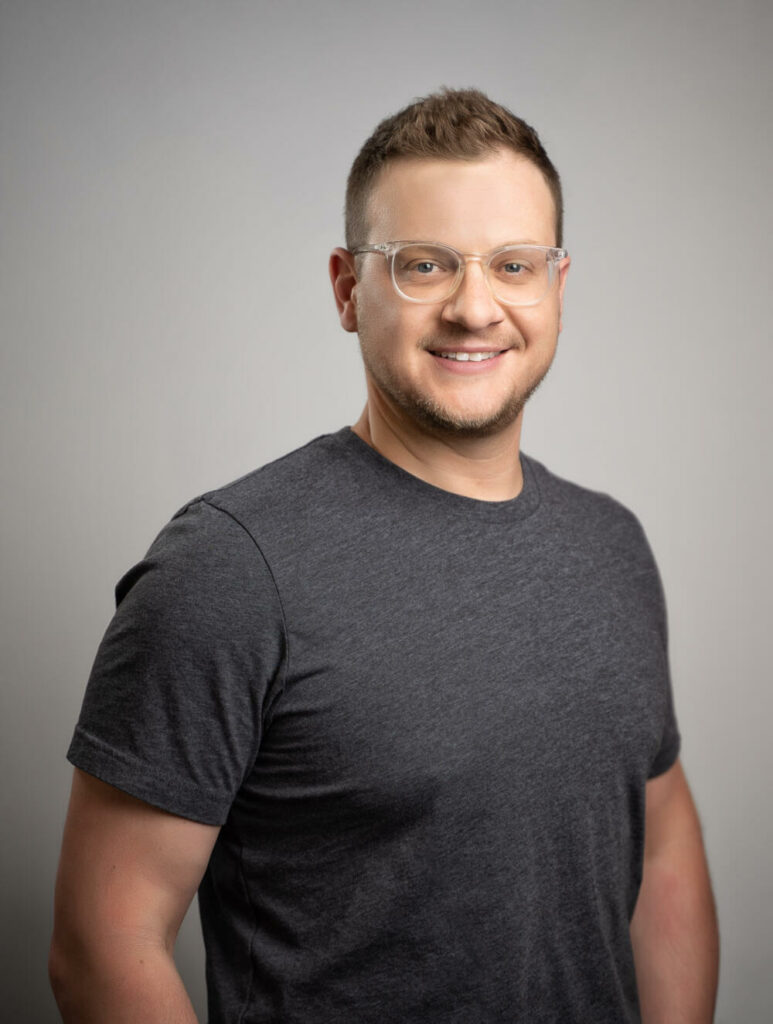
University of Minnesota, Duluth (2001-2005)
Hobbies
- Spending time with family
- Coaching his kids’ baseball teams
- Mountain biking
- Skiing
Garrett Moon grew up in Beulah, ND before pursuing his passion for graphic design at the University of Minnesota Duluth. While there, he would also begin sharpening his abilities as a developer.
“I was always sort of the ‘IT person’ in the group,” Moon said. “I taught myself how to code and I was always building websites for people on the side.”
However, graphic design remained his focus for some time. Eventually, Garrett and his wife, Katie, moved to Bismarck and both worked as graphic designer freelancers.
During that time, Garrett realized he had an entrepreneurial itch that needed to be scratched, he just needed to find the right partner.
“I needed to find someone with a skill set that could compliment my own,” Moon said. “I knew there were certain things that I didn’t want to be my strong suit and didn’t enjoy as much.”
Chapter 1: A Business Is Born

According to Moon, he and Walsh quickly noticed a difference between the passions that they both brought to the table.
“That first project we worked on at the agency, we both noticed that we brought a passion to it that you didn’t always find around the company,” Moon said. “We wanted to do things well, but we also wanted to be on the cutting edge as far as what the technology could do. It was pretty quickly into our friendship that we were having some exciting conversations about starting a business together.”
In addition to the business conversations, Moon and Walsh also found themselves spending a lot of time brainstorming different web apps they could create. And it wasn’t long before they began to build them.
“A lot of the time, it’d be 9 or 10 o’clock at night, and I would put the kids to bed and put on a pot of coffee,” Moon said. “Then, Walsh and I would hop on a Skype call with one another and work until 2 or 3 three in the morning or whenever we’d fall asleep. We’d rinse, repeat and do it all over again the next day. And we did that for quite a long time. It was definitely the hobby of choice for both of us though. It was a blast. Getting up and going to a regular job, that was the frustrating part, not programming until two in the morning.”
Overall, the pair estimates that they created around 10 products together. Some were made for fun, some made some money and several were very successful, including daux.io, a documentation generator that uses simple folder structure and Markdown files to create custom documentation on the fly.
“It really changed our perspectives on how apps can scale and build,” Moon said. “It also helped us learn a lot about content marketing which we utilized when rolling out some of our products.”
Those products helped the dynamic duo get their feet wet in the industry, setting them up to found their first company, Todaymade. That project was the precursor to CoSchedule, which, between 2010-and 2015, focused on web design and custom web application development.
Side Conversation: Garrett Moon
What are some things you know now, that you wish you would’ve known when you were dealing with the significant learning curve that comes with fundraising?
“It takes more money than you think. That’s a lesson we learned that I pass on to startups very frequently. We thought we only needed $250,000. Because of some state programs, we were able to double that to half a million and I’m very glad we did. If we did it again, I think I would’ve gone after even more. It can be difficult to justify larger amounts to investors and that’s why entrepreneurs typically back down and settle. But founders and investors should know that it usually takes more money than you’d think. It also is important for them to know that it can be much harder to raise money when you’re in the middle of your growth milestones as opposed to when you’re at the beginning of the startup cycle.”
Did You Know?
CoSchedule has been a member of the INC. 5000 list for the past three years in a row!
CoSchedule Takes Flight
According to both Moon and Walsh, Coschedule would have never been possible without their experiences in creating products for fun or for Todaymade.
“We built up a really good team at Todaymade and that allowed us to be able to run with the CoSchedule idea,” Walsh said. “If we didn’t have that experience that we gained through building large software projects for clients all over the state with Todaymade, as well as the experience Garrett and I had taking several smaller products to market, CoSchedule could’ve had a much different storyline.”
The “CoSchedule idea” came to the young entrepreneurs in January of 2013 while on a flight back from Atlanta, GA. They had been talking about creating something like CoSchedule, which originally was a social media scheduling software, for quite a while; but during that flight, Moon and Walsh fleshed out what CoSchedule would look like in enough detail that they were able to actually start the work on it.
From there, they created a Skunkwors team within Todaymade to launch the product, which they ended up doing in September of that same year. Being part of the content marketing business, the two knew the importance of pushing their company to an audience and had been updating their blog about the program consistently. So, once CoSchedule launched, they started acquiring customers very quickly. Their simple and affordable price of $10 per month also aided the quick acquisition of customers.
“Our first price was really to see if people would pay for the product,” Moon said. “Once we had paying customers, the prospects of scaling the business became very exciting for us.”
However, it didn’t take long before Moon and Walsh realized that they’d need help in scaling the business. CoSchedule was making money, but not a lot of it. And a significant amount of time was being spent on the product by the Todaymade team. They needed more people and funding.
So, they started an angel round with hopes of using the funds to build a team solely for CoSchedule, raising about $500,000 in the process before closing their angel round in April 2014. Those investments allowed Garrett and Justin to assemble a team of about a dozen and also step away from Todaymade which continued to operate until it was sold to Agency MABU, a local Bismarck agency in 2015.
Originally started as a social media scheduling yool CoSchedule has evolved into an all-encompassing marketing platform.
Office Shots


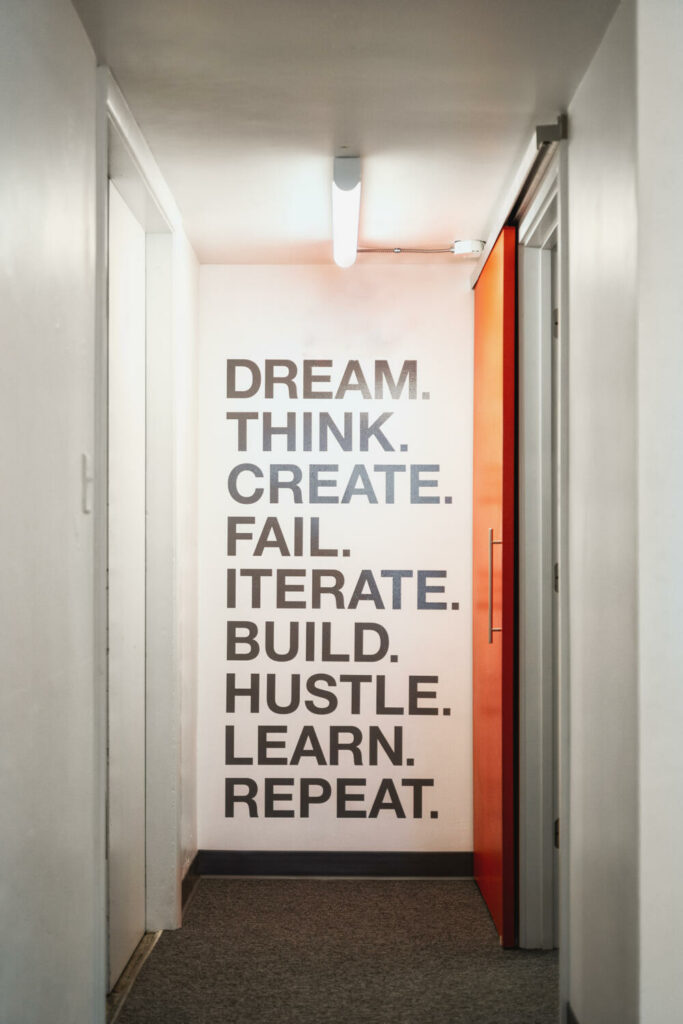

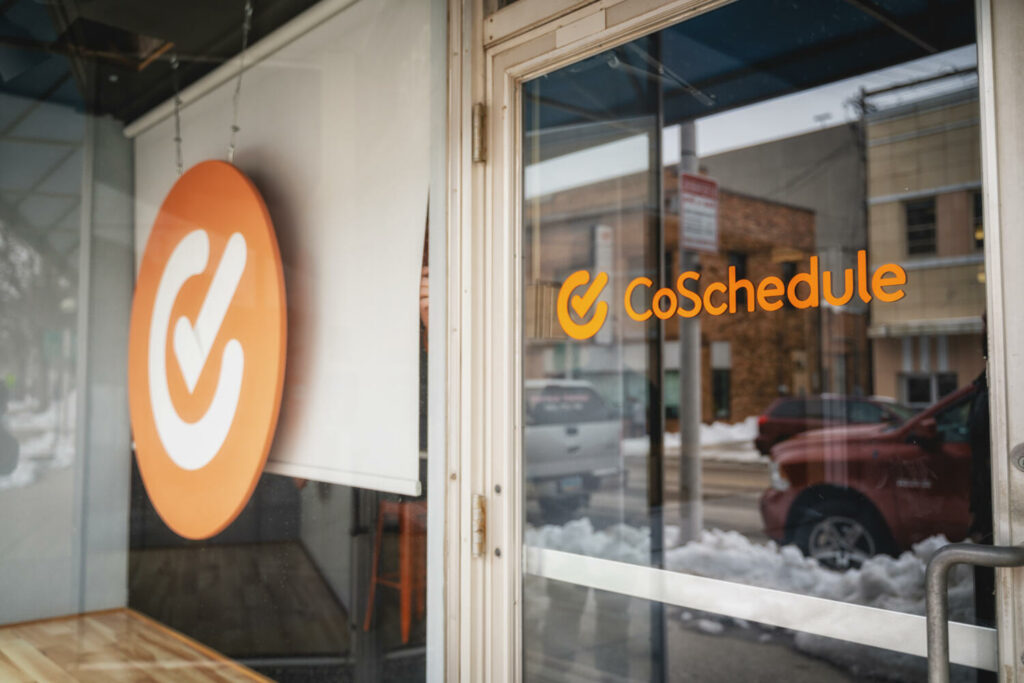
Did You Know?
CoSchedule is consistently one of the highest-rated social media management softwares by independent reviewers. Including digital.com, which rated CoSchedule as one of the 15 best options in 2021.
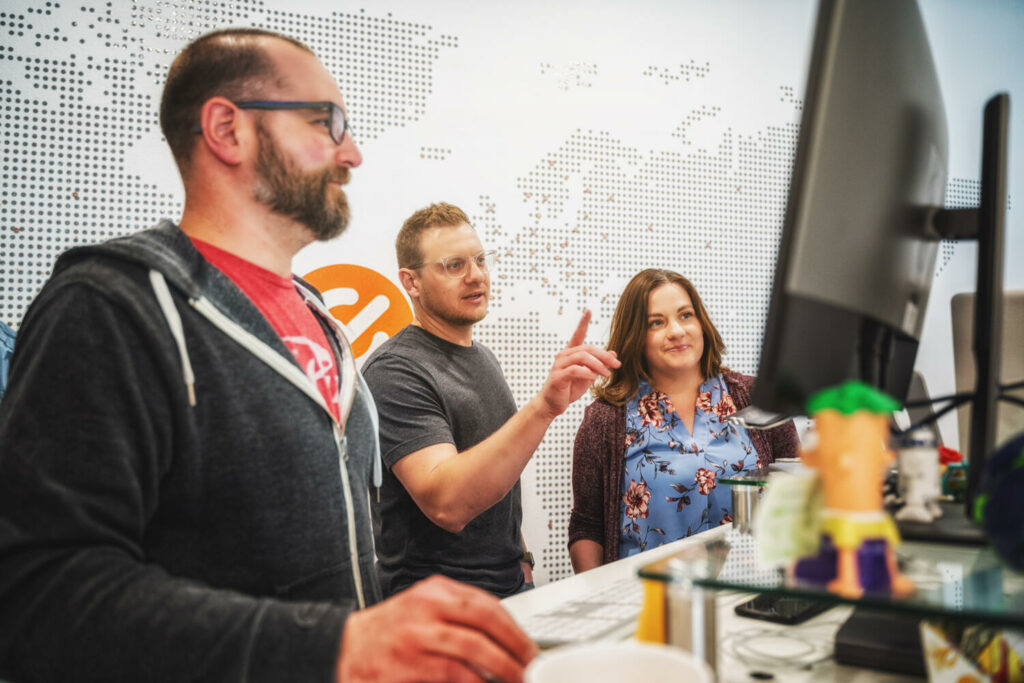
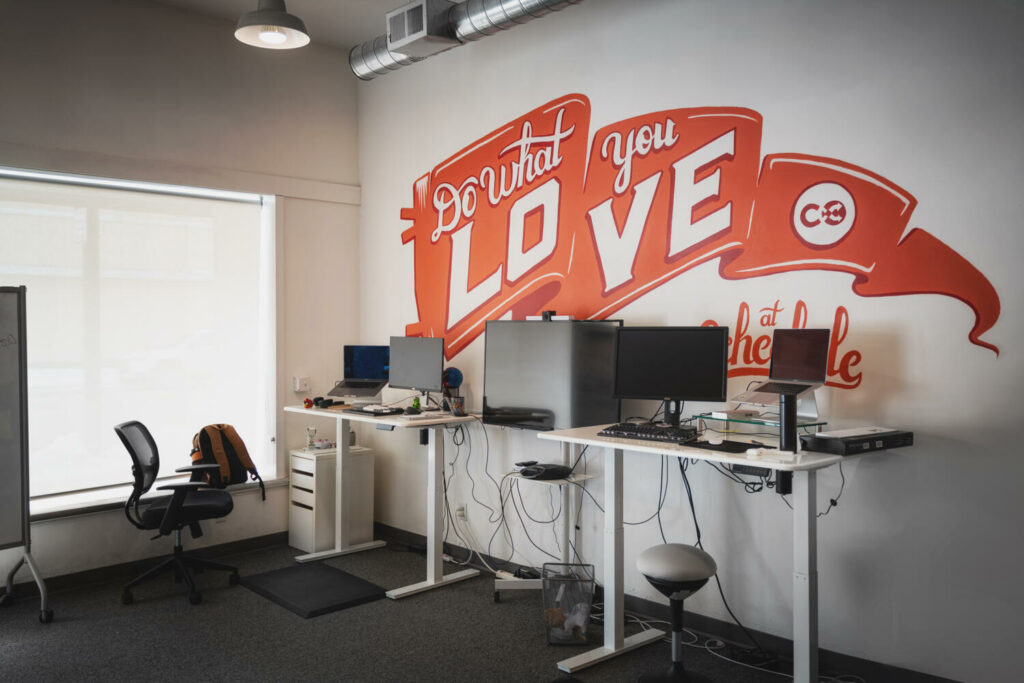
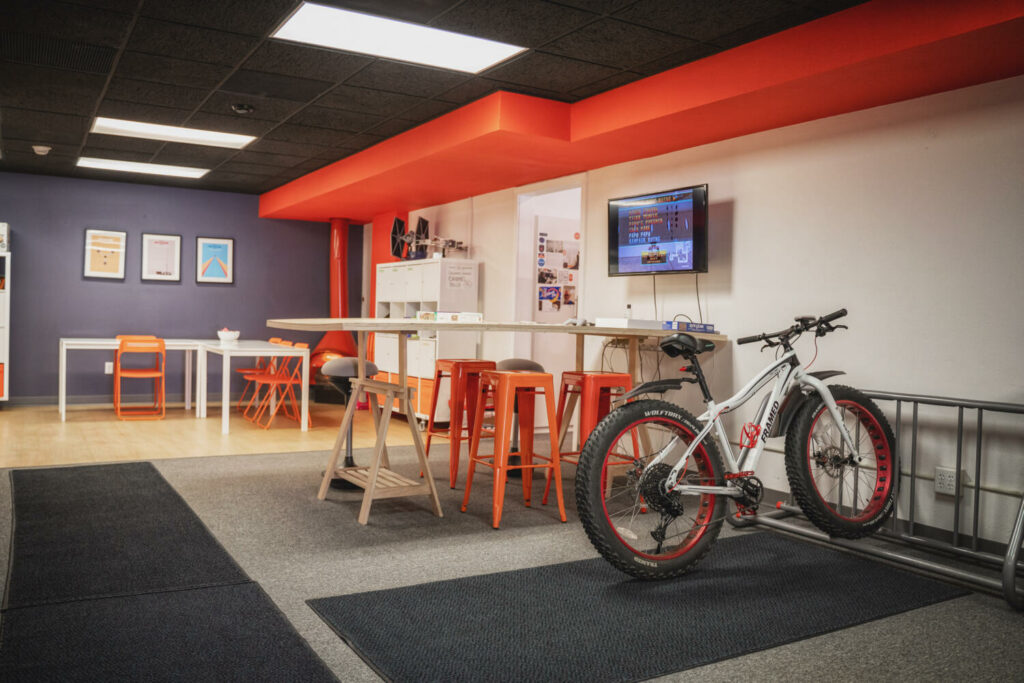
Chapter 2: The Road To Success
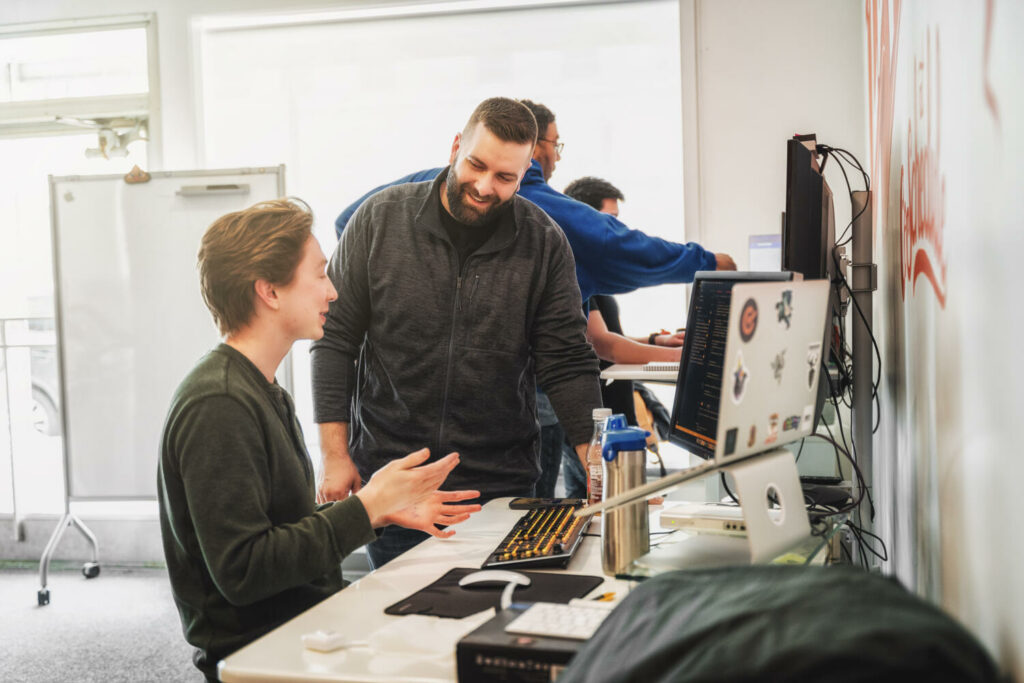
Throughout the last 9 years, CoSchedule has kept itself at the cutting edge of technology while finding a substantial amount of success all over the country. The product has evolved from a social media scheduling tool into a full-fledged marketing project management suite. The business has managed to find financial success while garnering a large following including over 3,000 followers on Instagram, nearly 60,000 followers on Twitter and over 16,000 likes on Facebook.
In fact, the company has been so successful that Moon and Walsh were recently able to buy back the business from its investors a move they say was aided by the strong relationship they kept with their investors.
“We had always assumed a five to six-year timeline in mind for transitioning the business,” Moon said. “Once we got there, we started wondering, ‘Should we raise more money? Should we sell?’ We got into some pretty in-depth discussions about an acquisition and got a pretty good understanding of what that would look like. However, we realized there were a lot of challenges that come with that. We were afraid of what would happen to the company’s North Dakota roots.
Our team was 100% North Dakota driven, our investing group was 100% North Dakotan, and that was important to us. We didn’t want anything to change. So we approached our investors about reacquiring the business.”
With a high gross startup, the expectation is usually that the business is going to be sold or there’s going to be an IPO. Investors aren’t making money because the startup is profitable. Oftentimes, a healthy startup is burning cash. This is also, partially, why the original investors were willing to turn the business back over. They needed the business to sell in order to make money, it didn’t necessarily matter who it was sold to. “We view buying this back as an investment,” Walsh said. “We see this as our first angel investment.”
And they’re hoping to make more.
Since the purchase, Moon and Walsh have begun to transition into more of advisory roles within the company, allowing them to pursue other passions including consulting, which they hope will transition to investing.
They’re looking to help companies that need help with pitching to investors, advice on how to segment products, advice on how to sell to larger customers and also help with simply connecting people to the local entrepreneurial ecosystem that they’ve grown so familiar with.
“We have a really unique perspective because we’ve been on both sides of the fence,” Moon said. “We’ve sold to investors and we’ve acquired a business from investors. We can be a real asset to these businesses and I think, eventually, we could help financially by investing as well.”
CoSchedule’s Newest Product
CoSchedule’s newest product, Headline Studio, helps content creators workshop headlines before posting, to drive maximum possible readership and engagement.
Chapter 3: The Imp[ortance of Culture
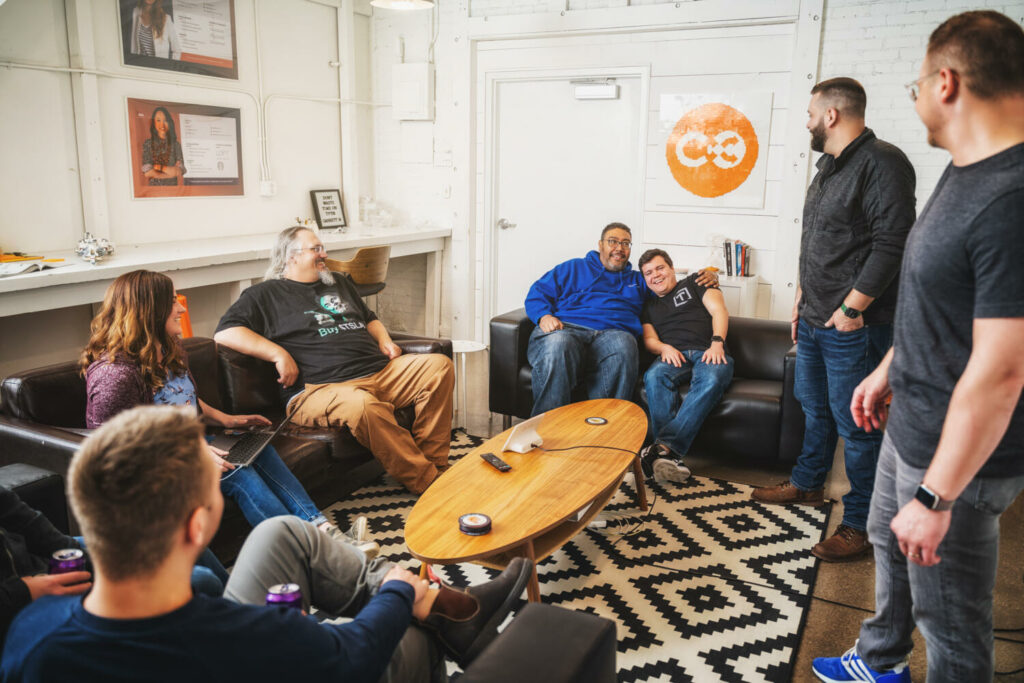
I think our greatest impact as a company is going to be seen through our team. Not through us individually. There have been a lot of past employees that have gone on to start businesses, nonprofits, social events, things that add incredible value to the communities that we live in. In many ways, much of our legacy will be felt through the team we have built. Hopefully, we’ve also created a path for future software companies in the state to have similar or more success. We want to cheer them on and maybe be involved in their growth.”
-Justin Walsh
“Culture” has really become a buzzword in the business community. Its importance and significance in the company is emphasized again and again. However, that’s not without good reason, and the founders of CoSchedule agree.
“One thing that we were very intentional about from the beginning was not making bad hires,” Walsh said. “When you’ve raised money and the only thing stopping your business from becoming as big as it could be and growing the number of customers is the size of your staff, it can be tempting to hire everyone that applies that is halfway qualified. We have a very rigid hiring process that we implemented during the Todaymade years that allowed us to not compromise. I think the culture of the company is at a huge risk when someone is brought on that isn’t a good fit. I’d rather wait and hire the right person instead of hiring just to fill a seat.”
In that hiring process, CoSchedule, as a company, spends between 10-15 cumulative hours of team time on a candidate from intro interviews to project challenges to culture interviews to even demoing the software for the candidates. With this method, they have grown, into a team of 50.
“We’d hate to like everything about a candidate, have them join the team, only to find out the work isn’t really what they were hoping for,” Walsh said. “Our process takes a lot of people. The candidate will spend time with anywhere from 6 to 10 team members at CoSchedule at different interview steps. We kind of use the whole tribe of CoSchedule to figure out if a candidate would be a good fit or not.”
Once the employee is in the door, they’re treated to a culture that offers a great deal of autonomy, allowing employees to make decisions and operate independently which they believe is important for employee motivation.
“Even with CoSchedule’s significant growth over time, we’ve kept a pretty flat organizational structure,” Moon said. “We also really embrace failure around here. We encourage new employees that are a couple of months in to start trying new things. We want them to take risks, make mistakes and understand that we’re giving them a lot of latitude to fail. There are a lot of cultures out there where perfection is expected. We think that if we’re not failing, we’re not pushing forward.”
Chapter 4: Why North Dakota

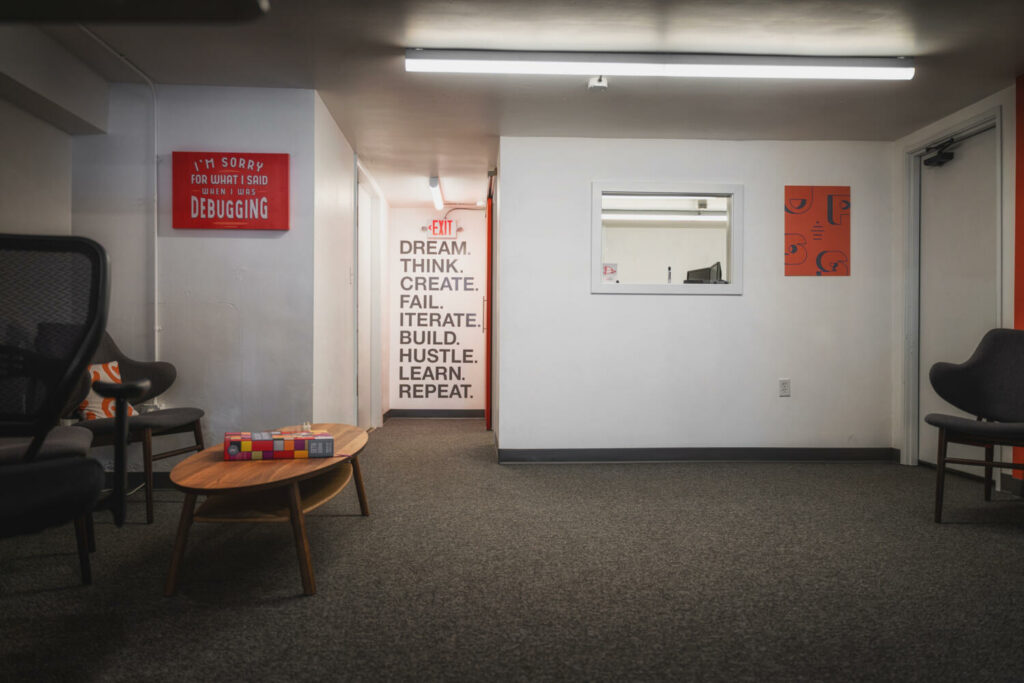
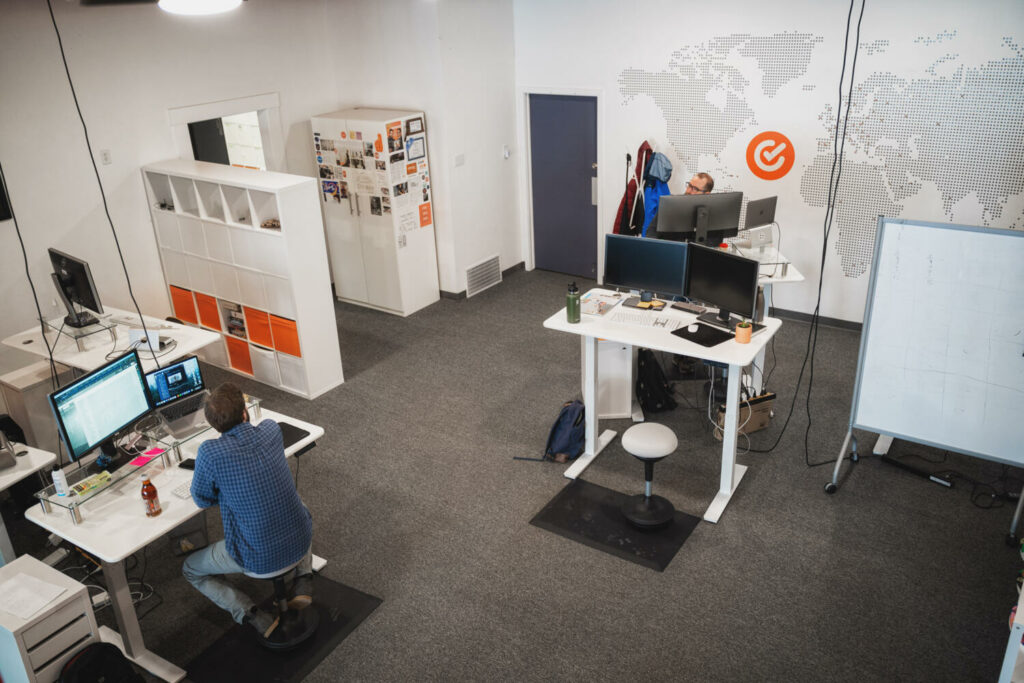
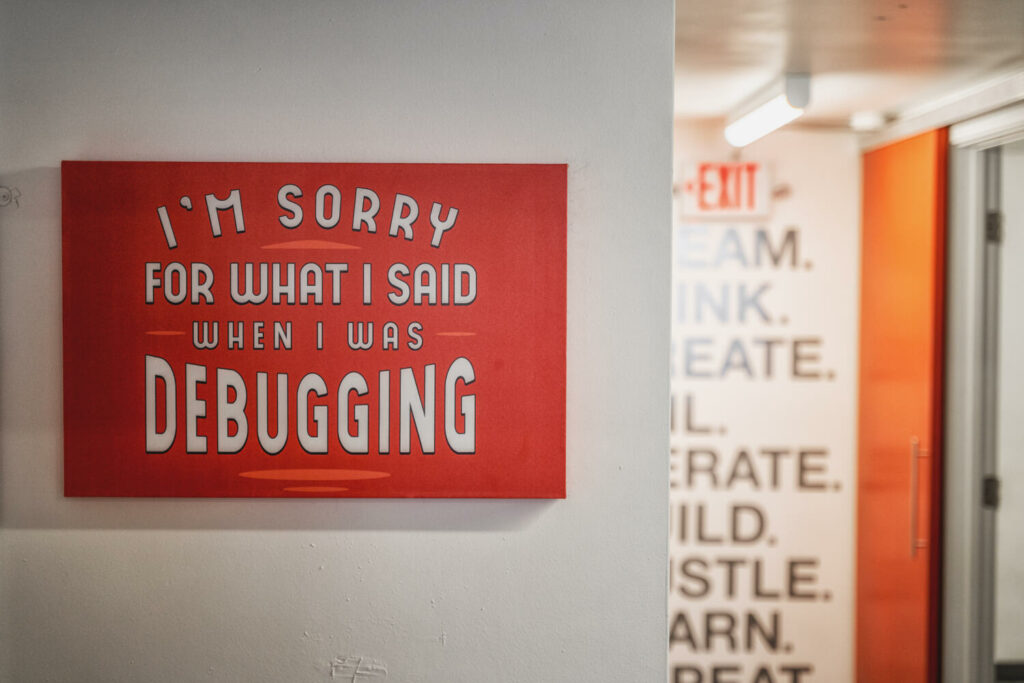
CoSchedule could have planted its roots anywhere, or at least that’s what it seems from the outside. Why Bismarck?
“We moved back for all of the reasons that people move back to North Dakota,” Moon said. “It’s a great place to raise a family. We’re closer to our family here as well. We also really appreciate a lot of the things that the western side of the state has to offer. I love mountain biking and there are great trails here. We really enjoy the Missouri River and the beauty and landscape of the area as well. We started a business here because we wanted to live here.”
“We have family here as well,” Walsh said. “Also, when you’re starting a business and it’s just you and your partner, you aren’t necessarily thinking about having to relocate to a tech hub to be closer to potential employees. It’s just not one of the first things you think about.”
It just so happens that North Dakota is also a fantastic place to do business according to the CoSchedule creators, who say that the majority of the roughly $5 million they have raised over the course of the business’s history has come from different local economic groups like the North Dakota Department of Commerce and the Bank of North Dakota.
And that’s exactly why they’ve taken steps to keep the business in North Dakota, to invest in North Dakota companies and to help continue prosperity in the region.
“I think our greatest impact as a company is going to be seen through our team. Not through us individually,” Walsh said. “There have been a lot of past employees that have gone on to start businesses, nonprofits, social events, things that add incredible value to the communities that we live in. In many ways, much of our legacy will be felt through the team we have built. Hopefully, we’ve also created a path for future software companies in the state to have similar or more success. We want to cheer them on and maybe be involved in their growth.”
Get In Touch!
Facebook: /coschedule
Twitter: @CoSchedule
CoSchedule – Bismarck
318 E Broadway Ave,
Bismarck, ND 58501
701-491-8744
CoSchedule – Fargo
630 1st Ave N #8,
Fargo, ND 58102
701-595-0567
coschedule.com

